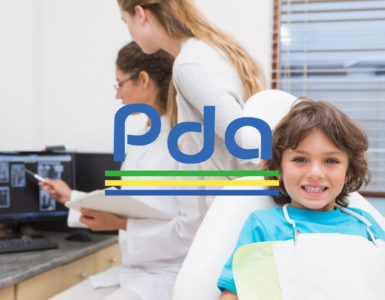Understanding the Connection Between Mental Health and Erectile Dysfunction
Erectile dysfunction (ED) is widely recognized as both a physical and psychological condition. While urologists often address physiological contributors such as cardiovascular disease, diabetes, and hormonal imbalances, an equally important dimension lies in mental health. Anxiety, depression, stress, and relationship difficulties frequently play a role in the onset or persistence of ED, making integrated care essential.
The psychological component of Erectile dysfunction (ED) is often underestimated, yet research continues to demonstrate that the brain plays a pivotal role in initiating and sustaining sexual response. When anxiety or depressive symptoms are present, they can interfere with desire, arousal, and performance, creating a cycle in which the fear of not achieving an erection reinforces the very dysfunction itself. Stress hormones such as cortisol further disrupt hormonal balance, while chronic worry about sexual performance can lead to avoidance of intimacy, thereby worsening both relationship satisfaction and overall quality of life.
Studies from the Centers for Disease Control and Prevention (CDC) Men’s Health resources highlight that men facing sexual health issues often underreport symptoms of depression or anxiety. Because of stigma or embarrassment, many individuals do not seek appropriate support. This underreporting not only delays effective treatment but also increases the likelihood that Erectile dysfunction (ED) will persist or worsen over time. Addressing these underlying mental health factors becomes just as important as managing the physical contributors.
Men’s health clinics are now bridging this gap by formally incorporating mental health assessments and therapies into ED treatment protocols. Cognitive behavioral therapy (CBT), mindfulness-based stress reduction, and couples counseling are increasingly offered alongside traditional medical approaches such as medication or hormone therapy. This integrative model not only improves treatment outcomes but also helps men regain confidence, reduce emotional distress, and strengthen their intimate relationships. By acknowledging that Erectile dysfunction (ED) is influenced by both body and mind, modern healthcare providers are shifting toward a more holistic, patient-centered strategy that normalizes psychological support as part of men’s sexual health care.
The Rise of Integrated Care Models in Men’s Health Clinics
Men’s health clinics in urban centers such as New York are increasingly embracing multidisciplinary treatment models. These models combine medical, psychological, and lifestyle-based interventions to create more comprehensive care pathways for men with erectile dysfunction. In practice, this means patients may see both a urologist Manhattan and a mental health professional as part of their treatment journey. By breaking down the traditional separation between physical and psychological health, these clinics are paving the way for a more holistic approach that addresses the full spectrum of factors contributing to men’s sexual health.
The adoption of these models reflects a growing recognition that erectile dysfunction is rarely the result of a single cause. Instead, it often arises from a complex interaction of vascular health, hormonal balance, psychological well-being, and daily lifestyle choices. When patients only receive treatment for the physical symptoms, underlying emotional or behavioral challenges can remain unresolved. Conversely, when psychological stressors are addressed without examining cardiovascular or endocrine issues, medical contributors to ED may persist. Integrated care models resolve this disconnect by ensuring that no element of the patient’s health is overlooked.
Key features of integrated care include:

Routine Mental Health Screenings
Identifying depression, performance anxiety, or relationship stress early in the diagnostic process is essential. Mental health screenings not only reveal conditions that may be contributing to erectile dysfunction but also reduce stigma by making these discussions a standard part of care. For many men, simply being asked about their emotional well-being opens the door to conversations they might otherwise avoid.
Collaborative Treatment Plans
Aligning the expertise of medical doctors, psychologists, and counselors allows for more personalized and effective treatment strategies. For example, a patient working with a urologist Manhattan may be prescribed medication to improve blood flow while simultaneously engaging in therapy to reduce performance anxiety. This combination helps address both the physical and mental barriers to healthy sexual function, leading to more sustainable results.
Lifestyle Support
Incorporating exercise, nutrition, and stress management guidance into care plans empowers men to take an active role in their recovery. Lifestyle interventions such as adopting a heart-healthy diet, quitting smoking, or practicing mindfulness techniques can significantly improve erectile function. By including these recommendations as part of the clinical framework, men’s health clinics provide patients with tools that support not only sexual wellness but also long-term overall health.
Ultimately, the rise of integrated care models represents a paradigm shift in how erectile dysfunction is treated. Rather than viewing ED as an isolated medical condition, men’s health clinics now approach it as a multifactorial issue requiring collaboration across specialties. This evolution not only enhances patient outcomes but also reduces the stigma surrounding both mental health and men’s sexual health care, encouraging more men to seek the help they need.
Psychological Factors as Independent Risk Contributors
While vascular disease, hypertension, and endocrine disorders are common physical causes of ED, research shows that psychological conditions can independently contribute to dysfunction. Performance anxiety, in particular, is cited as a primary factor in many cases, especially among men without significant underlying health conditions. This form of anxiety often arises from fear of failure during intimacy, creating a self-reinforcing cycle where the anticipation of erectile dysfunction makes it more likely to occur. Over time, this can lead to avoidance of sexual encounters, increased stress, and even strain within intimate relationships.
Addressing these issues with cognitive-behavioral therapy or sex therapy can significantly improve patient outcomes. Cognitive-behavioral therapy helps patients reframe negative thought patterns and reduce anticipatory anxiety, while sex therapy provides strategies for building confidence, enhancing communication with partners, and restoring a sense of control. In some cases, therapy may also involve couples counseling, recognizing that relationship dynamics often play a central role in the persistence of psychological barriers.
The National Institute of Diabetes and Digestive and Kidney Diseases (NIDDK) underscores that treatment of ED requires addressing all contributing causes simultaneously. This holistic framework recognizes that treating only the physical manifestations of erectile dysfunction without considering mental health factors can limit long-term progress. By integrating psychological care into treatment plans, clinics are not only helping men achieve better short-term outcomes but are also fostering resilience that prevents recurrence.
Clinics adopting this approach report improved long-term success rates compared to medical interventions alone. Patients who receive therapy alongside medical treatments often demonstrate greater satisfaction, improved self-esteem, and more stable sexual function over time. Furthermore, the inclusion of mental health professionals within men’s health clinics reduces stigma and makes psychological support more accessible. Instead of viewing psychological treatment as separate from medical care, patients experience it as a standard and essential part of their recovery journey.
Ultimately, acknowledging psychological factors as independent risk contributors redefines how erectile dysfunction is managed. It reinforces the need for a patient-centered model where emotional well-being, relational health, and medical care converge to create a pathway toward lasting improvement.
Collaboration Between Urologists and Mental Health Providers
The collaboration between urologists and mental health providers represents a significant shift in how erectile dysfunction is treated. A urology doctor NYC may evaluate physical health factors through diagnostic imaging, lab work, and physical examinations, while psychologists focus on emotional well-being. This combined approach ensures that patients do not receive fragmented or incomplete care.
For men seeking an erectile dysfunction doctor NYC, the inclusion of counseling services provides reassurance that their care extends beyond prescriptions and procedures. By managing both physiological and psychological contributors, multidisciplinary teams deliver more sustainable outcomes.
Regional Considerations: ED Care in New York City
New York City offers access to advanced healthcare, but men facing erectile dysfunction often encounter unique challenges, including high levels of stress, demanding careers, and diverse cultural expectations regarding masculinity and intimacy. The fast-paced environment of NYC contributes to elevated stress hormones, disrupted sleep patterns, and sedentary lifestyles, all of which can exacerbate erectile dysfunction. At the same time, cultural diversity within the city means that men approach topics of intimacy and sexual health from different perspectives, which can influence their willingness to seek treatment.
Clinics in the region are responding by integrating counseling services into treatment, ensuring that patients receive both physical and psychological support. For patients consulting an erectile dysfunction doctor New York City, the presence of in-house or affiliated mental health providers ensures that emotional well-being is considered part of comprehensive care. This approach helps reduce stigma, as men see therapy offered side by side with standard medical interventions, reinforcing that mental health is not an optional add-on but an integral part of treatment.
Furthermore, urology practices and men’s health clinics across Manhattan, Brooklyn, and Queens are increasingly adopting culturally competent care models. These include multilingual providers, community-specific outreach programs, and therapy approaches that acknowledge the values and traditions of different patient populations. For example, clinics may provide bilingual counseling for Spanish-speaking patients or culturally tailored resources for immigrant communities where discussions of sexual health carry additional social taboos.
Telemedicine has also emerged as a powerful tool in New York City’s ED care landscape. With hectic schedules and long commutes, many men prefer the discretion and convenience of virtual appointments. By combining digital access to psychologists with in-person visits to urologists, patients receive integrated care that fits the demands of metropolitan life.
Ultimately, the regional approach to erectile dysfunction treatment in New York City reflects the city itself: fast-moving, diverse, and innovative. Men who seek care from an erectile dysfunction doctor New York City increasingly benefit from holistic treatment models that address both body and mind, while also respecting cultural context and personal circumstances. This evolution ensures that ED care in the city remains accessible, effective, and responsive to the unique needs of its population.
Advances in Therapy: Beyond Medication
While pharmacological treatments such as PDE5 inhibitors remain a standard intervention, mental health care expands the range of solutions available. These medications are highly effective in improving physiological function, but they do not always address the underlying emotional or relational challenges that frequently accompany erectile dysfunction. Without acknowledging these dimensions, treatment outcomes can be incomplete or temporary.
Therapy can:
- Reduce performance anxiety through relaxation and mindfulness strategies.
Men often experience a cycle of anticipatory fear that worsens erectile dysfunction over time. Techniques such as mindfulness meditation, guided breathing exercises, and progressive muscle relaxation help interrupt this cycle, lowering stress and restoring confidence in intimate settings. - Address depressive symptoms that may hinder treatment adherence.
Depression not only affects mood but also decreases motivation to maintain healthy habits or follow prescribed medical regimens. Incorporating psychological therapy ensures that patients remain engaged in their treatment plan, improving adherence to medication schedules and lifestyle changes. - Improve partner communication and relationship satisfaction.
Erectile dysfunction is rarely experienced in isolation, it affects both partners. Therapy sessions, including couples counseling, provide a safe space to discuss concerns, improve intimacy, and strengthen the emotional bond. This shared approach reduces blame and increases the likelihood of long-term recovery.
By integrating these services, men’s health clinics ensure that medical and emotional care proceed in tandem rather than isolation. Patients benefit from a more comprehensive treatment plan that addresses the root causes of dysfunction while enhancing emotional well-being. This combined approach not only improves erectile function but also fosters stronger relationships, higher quality of life, and greater overall satisfaction with care.
In fact, many modern clinics are now expanding their offerings to include structured wellness programs that pair traditional urological care with mental health counseling, nutritional guidance, and stress management workshops. This model acknowledges that true recovery goes beyond symptom management, it requires equipping men with the tools to sustain both physical and psychological health for the long term.

Addressing Stigma and Encouraging Help-Seeking
A critical challenge in ED management is stigma. Many men hesitate to discuss sexual difficulties, and even fewer seek counseling. Fear of judgment, cultural expectations of masculinity, and misconceptions about erectile dysfunction often discourage individuals from seeking timely care. This silence not only prolongs suffering but can also worsen both the physical and psychological dimensions of the condition. By normalizing mental health services within men’s health clinics, providers create safe environments that encourage disclosure and treatment, reframing ED as a common and treatable health concern rather than a personal failing.
Educational campaigns from the U.S. Department of Health & Human Services (HHS) emphasize the importance of reducing stigma around men’s health issues, noting that untreated depression and anxiety can worsen physical symptoms. These campaigns highlight that men experiencing erectile dysfunction are not alone and that early intervention leads to better health outcomes. Integrating these public health messages into clinical practice ensures that patients feel validated and supported when discussing sensitive concerns.
Men’s health clinics adopting integrated care reflect this public health priority, making mental health support a standard rather than optional component of ED care. When therapy sessions, screenings, or counseling are introduced as routine aspects of treatment, alongside medical evaluations, patients are more likely to engage without hesitation. Over time, this approach shifts the cultural narrative, positioning mental health as an essential part of men’s sexual well-being.
In addition, community-based outreach and patient education initiatives are playing an increasingly important role. Seminars, online workshops, and digital awareness campaigns led by clinics and professional associations help normalize conversations about erectile dysfunction. These initiatives not only reduce stigma but also provide men with practical information about when to seek help, what treatment options exist, and how to involve their partners in the process.
Ultimately, addressing stigma and encouraging help-seeking is about empowerment. By fostering environments where men feel comfortable acknowledging challenges and accessing comprehensive care, healthcare providers are helping break down long-standing barriers. This cultural shift ensures that erectile dysfunction is treated not as a hidden struggle but as a health condition deserving of open dialogue, medical attention, and emotional support.
The Future of Holistic ED Management
The future of erectile dysfunction treatment lies in continued integration of physical and psychological care. As the medical community increasingly acknowledges the multifaceted nature of ED, treatment models are evolving to reflect a more comprehensive understanding of men’s health. Rather than separating medical interventions from emotional support, the next generation of care emphasizes collaboration, prevention, and personalization.
Advancements in telemedicine allow men to access mental health professionals discreetly, reducing barriers such as stigma, cost, or scheduling conflicts. Virtual platforms make it easier for patients to participate in therapy sessions, follow up with providers, and engage in guided behavioral programs without leaving home. Similarly, digital health records enable seamless coordination between urologists and psychologists, ensuring that all providers involved in a patient’s care have access to the same clinical insights. This integration improves efficiency, reduces redundancy, and creates a more streamlined treatment journey.
In metropolitan areas such as New York, where patient populations are highly diverse, culturally competent care models will also be essential. Men from different cultural, linguistic, or socioeconomic backgrounds may face unique barriers to seeking care for erectile dysfunction. Clinics that prioritize inclusivity, whether by offering multilingual services, tailoring therapy to cultural norms, or acknowledging the influence of community values, will be better positioned to deliver effective, personalized outcomes.
As men’s health clinics expand their services, the blending of medical and mental health support will likely become the norm. Already, many centers are incorporating routine mental health screenings, collaborative care teams, and wellness coaching into their erectile dysfunction programs. Patients seeking trusted providers, whether a urologist Manhattan or an erectile dysfunction doctor NYC, increasingly benefit from treatment models that recognize the inseparable link between mind and body.
Looking ahead, the future of holistic ED management will also be shaped by technological innovations such as wearable health trackers, AI-driven diagnostics, and virtual reality–based therapy tools. These advancements may soon complement traditional medical and psychological interventions, offering men personalized feedback on stress, cardiovascular health, and emotional well-being in real time.
Ultimately, this evolution represents a shift from reactive to proactive care, helping men not only treat erectile dysfunction once it develops but also strengthen resilience, improve overall wellness, and prevent recurrence. The integration of body and mind is no longer an option but a necessity in the future of men’s sexual health.
Encouraging Further Exploration
For men seeking more information on erectile dysfunction, its causes, and available treatments, official resources such as the CDC Men’s Health, NIDDK, and HHS provide reliable education. These organizations offer evidence-based guidance on risk factors, prevention, and treatment options, making them valuable starting points for individuals who may feel uncertain about where to turn. Exploring these trusted sources can help dispel myths, reduce stigma, and encourage men to take proactive steps in managing their health.
Beyond self-education, men are encouraged to seek care from clinics that embrace a multidisciplinary model. By engaging with clinics that integrate medical, psychological, and lifestyle interventions, patients gain access to a more holistic form of treatment. This approach not only addresses the immediate physical aspects of erectile dysfunction but also tackles underlying emotional and relational contributors, which are often overlooked in traditional care models.
Men who actively participate in their treatment journey, whether through exploring educational materials, discussing concerns openly with healthcare providers, or involving partners in therapy, often report greater satisfaction and more durable outcomes. Accessing resources like the CDC Men’s Health, NIDDK, and HHS ensures that patients are guided by accurate, research-backed information rather than misinformation found in less reliable sources.
Ultimately, encouraging men to explore these avenues fosters empowerment. By combining reliable knowledge with the support of clinics offering multidisciplinary care, individuals can make informed decisions that enhance both sexual health and overall quality of life. Erectile dysfunction does not need to remain a silent struggle; with the right information and comprehensive care, lasting improvement is within reach.





